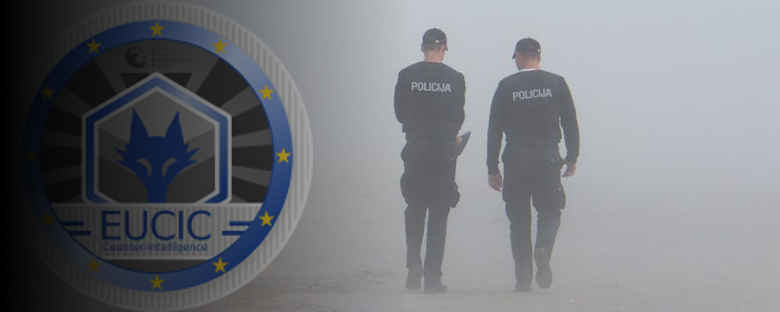EUCIC

EU Counterintelligence Operations
Enabling officials to conduct counterintelligence operations to regional and international standards.
The EU Counterintelligence Course (EUCIC) combines foundation and advanced surveillance, investigation, security and counterintelligence courses with specialist counterintelligence informant handling and analysis, counter-terrorism and anti-terrorism programmes as prescribed by international and regional curriculum. Students learn offensive and defensive counterintelligence techniques, advanced counterintelligence agent handling, surveillance, security and investigation suitable for countering state-level actors. The course draws particular focus to regional and international law, ethical standards, security and policy.
Introducing students to counterintelligence, the course takes students with an existing knowledge of intelligence to the position of recognised counterintelligence practitioners.
Target Audience
The course is oriented towards trained and experienced intelligence professionals with a specific pre-existing skill set and has historically attracted the following representations. Therefore, in addition to the usual minimum requirements for all Institute training, applicants should also posses regional training in:
- intelligence on the operations, analysis or command track, equivalent to the EUIOC, EUIAC, EUIMC, or similar; and
- interview and interrogation equivalent to the EU3IC or similar.
- informant handling equivalent to the EUAHC or similar.
| Internationals: Representatives from EU, UN and other international agencies, missions and institutions. | Nationals: National intelligence, military and law-enforcement delegates attending on behalf of European states. | ||
| Non-Profits: Functionaries in a position of public trust representing the media, NGOs, charitable and other third sector organisations. | Others: Professionals from the private sector, academia and other organisations. |
Learning Objectives
|
ECIM Concepts: Understand the European Criminal Intelligence Model (ECIM), the professional standards of counterintelligence agent handling and historical case studies of counterintelligence failure. |
|
|
Security: Understand security risks to covert operations and the role of the security manager. Report counterintelligence and security activity as appropriate. Understand conventional threats and the nature of emerging threats such as open source and cyber intelligence. |
|
|
Production & Technology: Conduct intelligence analysis to produce counter-intelligence products and provide security advice and assistance. Employ modern technologies in physical, technical, personal and material security to international and regional standards. |
|
|
Investigation: Understand the principles of investigation and operations in a law-enforcement and intelligence context. Liaise with other organisations in the conduct of counterintelligence activity. Legally arrange for an investigative search, seizure, and surveillance activities in relation to a counterintelligence case. Collect, handle, and report evidence admissible as such at court. Plan investigations, collect information from open and closed sources and conduct interviews with well trained deceptive targets to prove or disprove allegations. |
|
|
Agent Handling: Use counterintelligence agents in denial, deception, technical and other covert and special activities. Understand the process of escalation and how to extract personnel overseas. Conduct advanced technical and physical surveillance under cover and employing firearms. Understand how to process walk-ins, defectors and verify and validate intelligence acquired from other potentially deceptive sources. |
Course Format
The EU Counterintelligence Course is designed to develop regional skills and knowledge as a counterintelligence officer so you can more easily work across nation states. To develop these skills a variety of formats and delivery methods have been used including:
- Flexible Delivery: Workshops and exercises as well as traditional lectures.
- Coaching & Mentoring: Career advice in the security sector from recognised experts, assistance and support with course content and sustained aftercare.
- Blended Learning: The latest iteration of the course combines preparatory training via our e-learning platform with consolidated learning in an intensive attendance programme.
Part 1 - e-Learning
Prior to attendance each candidate must pass a preparatory e-learning programme delivered over no less than six months. Candidates are free to sign up and begin study at any time and on their own schedule.

Block 1
The ECIM & Counterintelligence

Block 2
Security & Failure

Block 3
Investigation

Block 4
Analysis & Threats

Block 5
Denial & Deception
Between April and July the following webinars and other online events will be scheduled for delivery via a secure platform. These sessions on the more sensitive information and practical training needed to perform counterintelligence throughout Europe. Each session is approximately 90mins in duration and most often scheduled during CET evenings and weekends to fit in with candidate's professional commitments.
- Induction, Cover & Legend.
- Foot Surveillance.
- Mobile & Progressive Surveillance.
- Technical Surveillance & TSCM.
- Search & Seizure.
- Covert & Special Activities.
- Walk-ins & Defectors.
- Escalation & Extraction.
- Firearms & Explosives.
- Counterintelligence Liaison & Collection.
- Counterintelligence Operations.
- Counterintelligence Interviews.
- Counterintelligence Agent Operations.
- Contingency Protocols.
- Deception & Counter-Deception Operations.
- Information Warfare (OTA*)
* Specialised optional training is offered with each of the Institute's courses. Although this extended training does not form part of the curriculum it is assessed and can offer candidates the opportunity to gain a more practical insight into a specific area of their training. These Optional Training Assessments (OTAs) are discretionary and may be offered at any point throughout the study cycle.
Part 2 - Residential/Online School
After completion of the e-learning programme in Stage I, an intensive hybrid residential school consolidates learning over five to twelve consecutive days depending upon the options chosen. The majority of the school is Ex. SOLO, a live training exercise and capability assessment during which candidates take on the role of counterintelligence officers. Candidates can choose to attend on-site in Vienna or by video-conferencing online.

Day 1
Induction & Surveillance

Day 2
Exercise Solo

Day 3
Exercise Solo

Day 4
Exercise Solo

Day 5
Exercise Solo
As the majority of the school exists in exercise phases, the residential school typically lasts for 5 days but may be extended by a further 7 days as select students continue the exercise overseas. For further details consult Ex. SOLO.
Dates & Times
Candidates are free to sign up and begin studying the e-learning component at any time and on their own schedule. The residential school and its online alternative run once a year, beginning on the fifth Monday in July or the first Monday of August and running for five to twelve consecutive days depending upon the options chosen. Candidates may not be admitted to the hybrid residential school without having achieved a passing grade on the e-learning element. Therefore, candidates should ensure they are enrolled by no later than the first week in February to provide sufficient time to complete distance-learning and access to all available scheduled events. Applications take approximately 4 weeks to process but security vetting may take up to 6 months to complete for applicants who lack a current security clearance.
Assessment
Assessment may be by any valid and accredited competency assessment meeting course requirements. However, competency is most commonly evidenced through the following combination of assessment methods:
- A pre-selection dossier including validated: security vetting, professional/academic reference checks, higher education certification (degree-level or equivalent), fitness/medical checks and evidence of a relevant career history and assessed knowledge in European security.
- A score of greater than 49% on the intelligence operations section of the MCPE or an equivalently balanced examination of similar content.
- Submission of a portfolio of work satisfying the criteria for at least a pass according to the candidate handbook.
- An approved assessor's independent testimony of observed competency across the counterintelligence domain of the Integrated Competency Framework (ICF) for Intelligence throughout at least 10 hours of supervised professional practice.
Standards
Credentials are fully accredited for compliance with international standards. For further details on Institute requirements, international standards and accreditation, view the Accreditation page.
Certification
The EQF Level 3 Certificate in EU Counterintelligence Operations accompanying this credential is earned after accruing 14 credits at approximately 140 guided learning hours.
Fees & Discounts
Not including accommodation, the course is delivered at a cost of €3000. Payment is accepted by bank transfer, card or PayPal. The following pricing options are available:
|
|
Member's Rate: If you have a current membership, log in with your user ID and password to receive a €150 discount when making your payment online. |
|
|
Distance-Learning Rate: Gain an additional €500 discount by electing to complete the residential element of the course online instead of attending on-site. |
|
|
Group Rate: If you are booking on behalf of a group, further incentives may apply. Please contact the head of the training and directing staff for further details. |
|
|
Induction Fees: Candidates using the Institute to obtain a security clearance for the first time must also complete the Intelligence Security (INTSEC) awareness course. Those who have not studied with the Academy before must complete the Intelligence Foundations (INTFND) selection and induction course. Fees for these online short-courses are €350 and €150 respectively. |
Downloads
Location
Vienna or Online.
